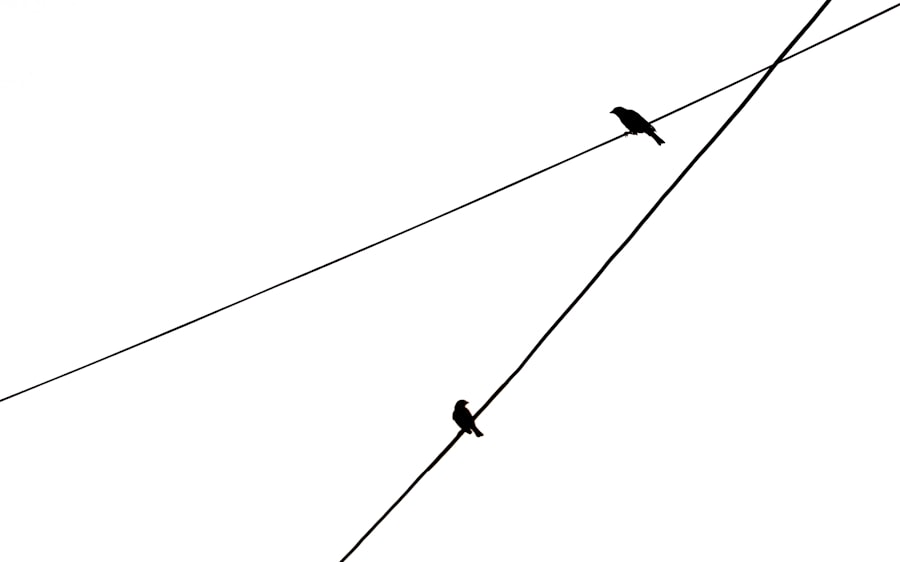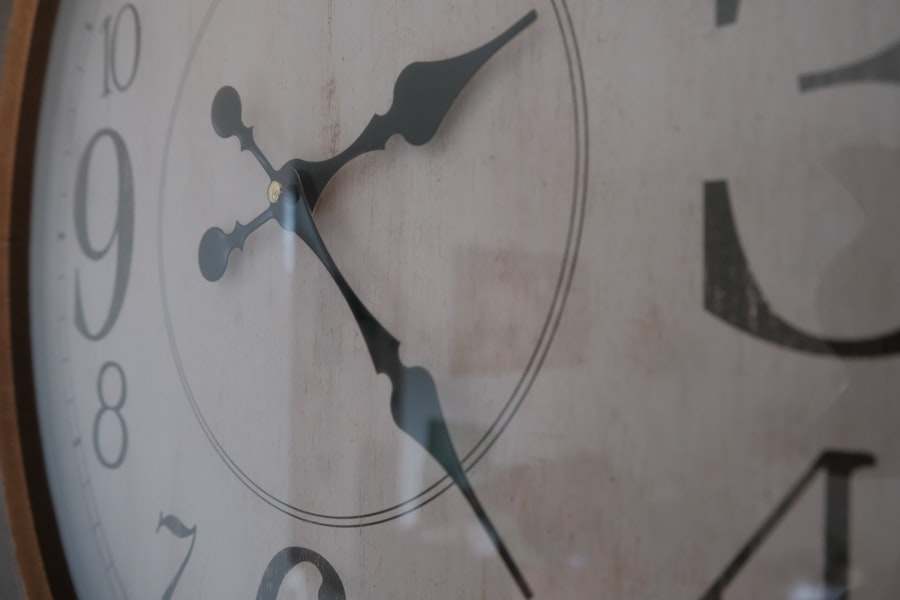The concept of Time’s Arrow refers to the unidirectional flow of time, a phenomenon that suggests time moves in a single direction—from the past, through the present, and into the future. This notion is not merely a reflection of human perception but is deeply rooted in the fabric of the universe itself. Time’s Arrow encapsulates the idea that certain processes are irreversible, leading to a clear distinction between past and future.
This intrinsic directionality raises profound questions about the nature of reality, existence, and the laws governing the cosmos. As humanity has evolved, so too has its understanding of time. From ancient civilizations that viewed time as cyclical to modern scientific interpretations that emphasize linear progression, the concept of Time’s Arrow has undergone significant transformation.
This article will explore various dimensions of Time’s Arrow, including its historical perspectives, scientific foundations, and philosophical implications. By delving into these aspects, one can appreciate the complexity and richness of this fundamental concept that shapes human experience and understanding.
Key Takeaways
- Time’s arrow refers to the unidirectional flow of time from past to future, a concept explored across physics, cosmology, and philosophy.
- The second law of thermodynamics, highlighting entropy increase, provides a physical basis for the one-way direction of time.
- Philosophical discussions examine how time’s arrow impacts notions of determinism, free will, consciousness, and existence.
- The problem of time’s arrow challenges the philosophy of mind by questioning how temporal direction relates to conscious experience.
- Reconciling scientific and philosophical perspectives on time’s arrow remains essential for a comprehensive understanding of reality.
Historical Perspectives on the One-Way Direction of Time
Throughout history, different cultures and philosophies have grappled with the nature of time and its directionality. In ancient Greece, philosophers like Heraclitus posited that change is the essence of existence, famously stating that one cannot step into the same river twice. This perspective hinted at a dynamic view of time, where the flow is continuous and ever-changing.
Conversely, thinkers such as Parmenides argued for a more static conception of reality, suggesting that change is an illusion. These early debates laid the groundwork for later discussions about Time’s Arrow. The advent of modern science brought new insights into the nature of time.
The work of Isaac Newton established a framework in which time was viewed as absolute and uniform, flowing steadily regardless of events occurring within it. However, this perspective began to shift with the introduction of thermodynamics in the 19th century. Scientists like Ludwig Boltzmann began to explore the implications of entropy and disorder, leading to a more nuanced understanding of time’s directionality.
The historical evolution of these ideas reflects humanity’s ongoing quest to comprehend the complexities of time and its implications for existence.
The Second Law of Thermodynamics and Entropy

At the heart of Time’s Arrow lies the Second Law of Thermodynamics, which states that in an isolated system, entropy—a measure of disorder—tends to increase over time. This principle provides a scientific basis for understanding why certain processes are irreversible and why time appears to flow in one direction. As systems evolve, they move from states of lower entropy to higher entropy, creating a natural progression from order to disorder.
This phenomenon not only explains why ice melts or why a broken glass cannot spontaneously reassemble but also reinforces the idea that time has a distinct direction. Entropy serves as a crucial link between physical processes and the perception of time. As systems become more disordered, they mark a clear distinction between past and future.
For instance, when one observes a cup falling off a table and shattering on the floor, it is evident that this event cannot reverse itself spontaneously. The increase in entropy associated with such occurrences aligns with our intuitive understanding of time’s flow. Thus, the Second Law of Thermodynamics not only elucidates physical phenomena but also reinforces the philosophical implications surrounding Time’s Arrow.
The Arrow of Time in Physics and Cosmology
| Aspect | Description | Key Metric/Concept | Typical Values/Examples |
|---|---|---|---|
| Thermodynamic Arrow | Direction of time defined by increase of entropy in closed systems | Entropy (S) | Entropy of universe increasing; ΔS > 0 |
| Cosmological Arrow | Direction of time defined by expansion of the universe | Scale factor (a(t)) | Increasing scale factor over time; a(t) growing since Big Bang |
| Radiative Arrow | Time direction indicated by emission and absorption of radiation | Wave propagation direction | Electromagnetic waves propagate outward from sources |
| Quantum Arrow | Time asymmetry in quantum measurement and wavefunction collapse | Measurement-induced state change | Irreversible collapse during observation |
| Psychological Arrow | Human perception of time flowing from past to future | Memory formation and recall | Memory stores past events, not future |
| Entropy Rate in Universe | Rate at which entropy increases in the observable universe | Entropy increase per year | Estimated ~10^35 J/K per year (approximate) |
| Time Symmetry in Fundamental Laws | Most fundamental physical laws are time-reversible except weak interactions | CP violation parameter | Small CP violation observed in kaon and B-meson decays |
In physics and cosmology, Time’s Arrow manifests in various ways, influencing theories about the universe’s origin and evolution. The Big Bang theory posits that time itself began with this monumental event approximately 13.8 billion years ago. As the universe expanded from an incredibly hot and dense state, it set into motion a series of processes that would lead to the formation of galaxies, stars, and planets.
This expansion marks a clear temporal beginning, establishing a framework within which Time’s Arrow operates. Moreover, cosmological models suggest that as the universe continues to expand, it will eventually reach a state known as “heat death,” where entropy maximizes and all energy is uniformly distributed. This scenario illustrates how Time’s Arrow is not merely a local phenomenon but is intricately tied to the fate of the universe itself.
The interplay between physical laws and cosmic evolution underscores the significance of Time’s Arrow in shaping our understanding of existence on both micro and macro scales.
Philosophical Implications of Time’s Arrow
The implications of Time’s Arrow extend far beyond scientific inquiry; they permeate philosophical discourse as well. One significant area of exploration involves the nature of causality. If time flows in one direction, then causation must also adhere to this unidirectional flow—events in the past influence those in the future but not vice versa.
This understanding challenges traditional notions of determinism and raises questions about how events are interconnected within the temporal framework. Additionally, Time’s Arrow invites contemplation on the nature of reality itself. If time is inherently directional, what does this mean for concepts such as identity and change?
Philosophers have long debated whether objects retain their identity over time or if they are fundamentally different at each moment due to continuous change. The exploration of these questions reveals how deeply intertwined our understanding of time is with our perceptions of existence and reality.
The Problem of Time’s Arrow in Philosophy of Mind

In the realm of philosophy of mind, Time’s Arrow presents intriguing challenges regarding consciousness and subjective experience. The human mind perceives time as flowing from past to future, yet this perception raises questions about how consciousness interacts with temporal processes. If consciousness is bound by Time’s Arrow, how does it reconcile with memories from the past and anticipations for the future?
This interplay between temporal perception and cognitive processes invites further exploration into the nature of awareness. Moreover, some philosophers argue that consciousness itself may be an emergent property influenced by temporal dynamics. The experience of “now” serves as a focal point for individuals navigating their memories and expectations.
This temporal anchoring suggests that consciousness is not merely a passive observer but an active participant in shaping one’s experience within the framework of Time’s Arrow. Such considerations highlight how deeply interconnected consciousness is with our understanding of time.
The Arrow of Time and the Nature of Consciousness
The relationship between Time’s Arrow and consciousness raises profound questions about human experience and existence. Consciousness allows individuals to reflect on their past experiences while simultaneously projecting themselves into future possibilities. This duality creates a rich tapestry of awareness that is inherently tied to temporal flow.
However, it also leads to existential inquiries about meaning and purpose within this linear progression.
Some propose that transcending temporal limitations could lead to a more profound understanding of existence itself.
Yet, such notions challenge conventional views about identity and continuity—if consciousness were to exist outside time, what would it mean for personal identity? These philosophical explorations underscore how deeply intertwined consciousness is with our understanding of Time’s Arrow.
Time’s Arrow and the Philosophy of Determinism
The concept of determinism posits that every event or state is determined by preceding events according to natural laws. Within this framework, Time’s Arrow plays a crucial role in shaping deterministic views about causality and predictability. If time flows in one direction, then past events set into motion a chain reaction leading to future outcomes—this perspective aligns with classical deterministic models where every effect has a cause.
However, challenges arise when considering quantum mechanics and its inherent uncertainties. The probabilistic nature of quantum events introduces complexities that question strict determinism while still adhering to Time’s Arrow. Philosophers have debated whether determinism can coexist with free will within this temporal framework or if they are fundamentally at odds with one another.
The interplay between determinism and Time’s Arrow invites ongoing inquiry into how individuals navigate their choices within a seemingly predetermined universe.
Time’s Arrow and the Philosophy of Free Will
The relationship between Time’s Arrow and free will remains one of philosophy’s most contentious debates. If time flows unidirectionally and past events determine future outcomes, can individuals truly exercise free will? Some argue that if every decision is influenced by prior experiences and circumstances, then free will may be an illusion—a mere construct shaped by temporal constraints.
Conversely, proponents of free will contend that individuals possess agency within this temporal framework. They argue that while past experiences inform decisions, individuals can still make choices that diverge from deterministic paths. This perspective emphasizes personal responsibility and moral agency within the context of Time’s Arrow.
The ongoing dialogue surrounding free will invites deeper exploration into how individuals navigate their lives amidst temporal constraints while asserting their autonomy.
The Arrow of Time and the Philosophy of Existence
Time’s Arrow also intersects with existential philosophy, prompting inquiries into what it means to exist within a temporally constrained reality. Existentialists often grapple with themes such as absurdity, meaninglessness, and authenticity—questions that become even more poignant when viewed through the lens of Time’s Arrow. The awareness that life unfolds within a linear progression can evoke feelings of urgency or anxiety regarding one’s purpose.
This perspective aligns with the notion that while Time’s Arrow imposes constraints on existence, it also offers opportunities for self-definition and authenticity. The interplay between temporality and existential inquiry underscores how deeply intertwined these concepts are in shaping human experience.
Reconciling the One-Way Direction of Time with Philosophical Inquiry
In conclusion, Time’s Arrow serves as a multifaceted concept that bridges scientific inquiry with profound philosophical exploration. From its historical roots to its implications for consciousness, determinism, free will, and existence itself, Time’s Arrow invites individuals to reflect on their place within a universe governed by unidirectional flow. As humanity continues to grapple with these complexities, it becomes evident that reconciling scientific understanding with philosophical inquiry enriches our comprehension of reality.
Ultimately, embracing the intricacies surrounding Time’s Arrow allows for deeper engagement with fundamental questions about existence and consciousness. By acknowledging both its scientific foundations and philosophical implications, individuals can cultivate a more nuanced understanding of their experiences within this temporal framework—one that honors both the mysteries of science and the richness of human thought.
The philosophical debate on time’s arrow often intersects with discussions on the nature of time itself, as explored in various articles. One such article that delves into these themes is found at Freaky Science, where the complexities of temporal directionality and its implications for our understanding of reality are examined. This exploration raises intriguing questions about causality and the flow of time, making it a valuable resource for anyone interested in the philosophical implications of time’s arrow.
WATCH THIS! The Future Is Already Written: Why Physics Says Time Is a Lie
FAQs
What is the “arrow of time” in philosophy?
The “arrow of time” refers to the concept that time has a specific direction or flow, typically from the past to the future. Philosophically, it addresses why time seems to move forward and not backward, despite many physical laws being time-symmetric.
Why is the arrow of time considered a philosophical debate?
The arrow of time raises questions about the nature of time, causality, and existence that go beyond physics. Philosophers debate whether the direction of time is fundamental or emergent, and how it relates to human experience and metaphysical concepts.
How does physics relate to the philosophical debate on time’s arrow?
Physics provides scientific explanations for the arrow of time, such as the increase of entropy in thermodynamics. However, these explanations do not fully resolve philosophical questions about why time has a direction or what that means for reality.
What are some key theories about the arrow of time?
Key theories include the thermodynamic arrow (based on entropy increase), the cosmological arrow (related to the universe’s expansion), the psychological arrow (our perception of time), and the causal arrow (cause preceding effect). Philosophers analyze these to understand time’s nature.
Does the arrow of time imply that time is absolute?
Not necessarily. The arrow of time indicates a directionality but does not imply that time itself is absolute. Many philosophical and scientific perspectives view time as relative or dependent on observers and conditions.
Can time’s arrow be reversed according to philosophical discussions?
While some physical theories allow for time-reversal symmetry, the observed macroscopic arrow of time appears irreversible. Philosophical debates explore whether this irreversibility is fundamental or a result of initial conditions and entropy.
How does the arrow of time affect our understanding of causality?
The arrow of time underpins the concept of causality, where causes precede effects. Philosophically, this raises questions about determinism, free will, and whether causality is a fundamental feature of the universe or a human construct.
Is the arrow of time universally agreed upon in philosophy?
No, there is no universal agreement. Different philosophical traditions and thinkers offer varying interpretations of time’s arrow, reflecting diverse metaphysical, epistemological, and scientific perspectives.
